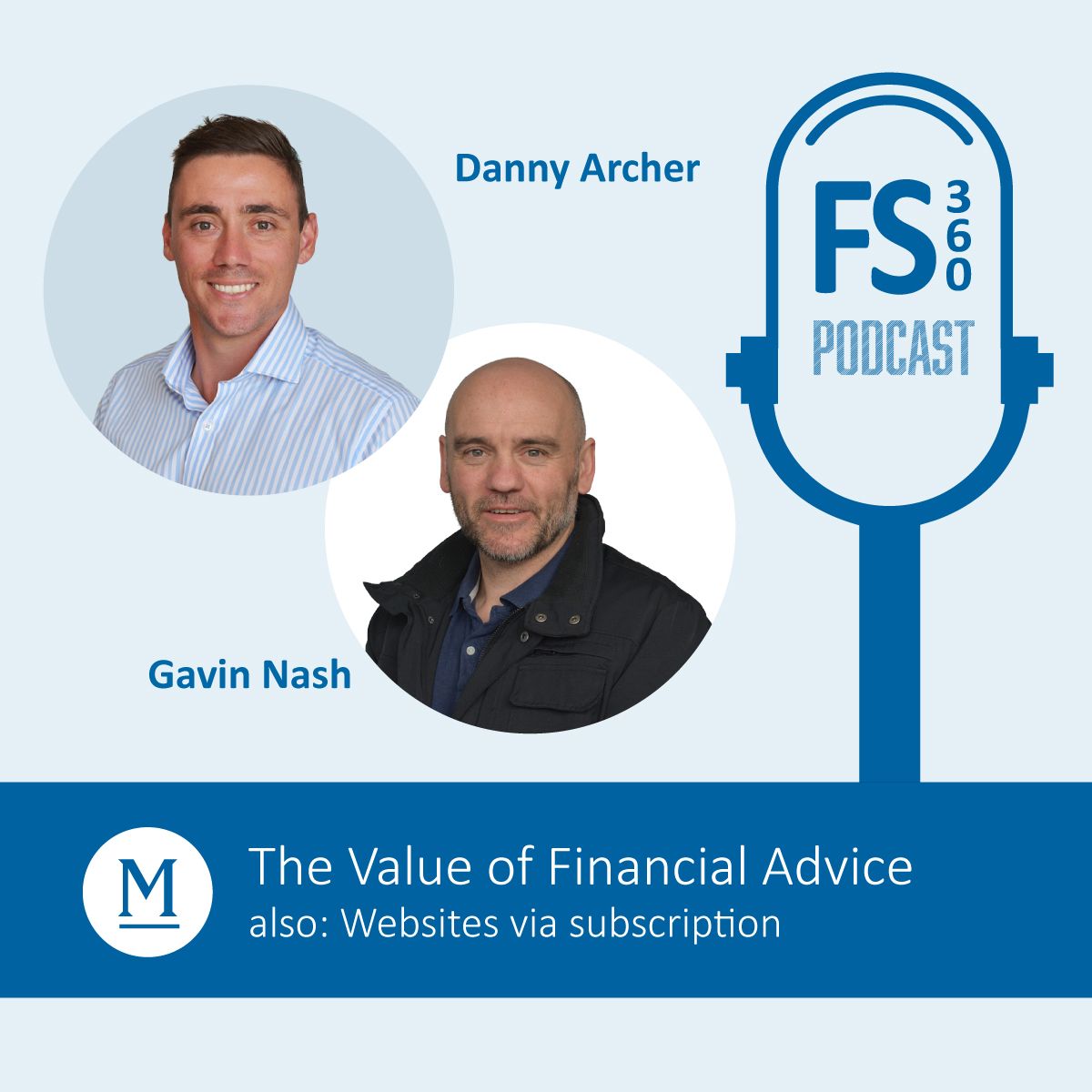FS360 Podcast - Episode 53: The value of financial advice
A 2022 Russell Investments report found that value of financial advice could equate to a 5.2% increase in value for their clients.
Speaking on the FS360 podcast with Gavin Nash, Mulcahy & Co Geelong Financial Planner Danny Archer explained the five services from The Value of an Advisor report; appropriate asset allocation, behavioural mistakes/finance, cost of cash, expertise and tax effective investing.
Asset allocation
According to the report, 65% of people that were part of the research didn’t know where their funds were invested.
“The role of the advisor in this case is to help our clients actually articulate what their goals are, translate this into an investment objective, and then design the best possible strategy and also portfolio recommendations that do come with a level of risk that’s appropriate for the client,” he said.
“An example I always use is the Australian market’s fantastic … but the reality is (it) only represents 2 or 3% of the world’s market, so if you had all of your money just in Australian equities or … property, there are some pros to that, but you’re also forgoing diversification to 98% of the world.”

Behavioural mistakes/finance
There are generally four types of investor behaviour observations, two of which were prevalent during COVID-19.
“During that period there were two observations of behaviour, one of them was the loss averse investor and what that means is investors … focus on trying to avoid loss (more) than they do making a gain,” Archer said.
“The other one is the over confident investor … they don’t actually take into account the actual risk … of a short-term decision that can have on their long-term future.”
Herd mentality describes those who mimic the actions of larger groups, while familiarity is those who tend to prefer what’s familiar or well known.
“Asset allocation can very much mitigate against all four of these risks,” Archer said.
“The total value out of the five steps here equates to 5.2%, of (that), behavioural finance represents 2.2%.”
Cost of cash
While cash can provide a level of certainty for people, holding too much could provide a negative outcome.
“As an example, investors who require cashflow in retirement can develop strategies to allocate and maintain levels of cash to meet expected spending,” Archer said.
“If a client says ‘Danny I want to retire in two years’ time and I’d like to spend $50,000 per year’, we might say ‘okay, as a worst case we’ll keep $50,000 in cold hard cash’.
“There can be a cost to holding too much cash, which is what we call a cash drag.”
Expertise
The report could not quantify the value of expertise, however Archer said the value would vary depending on multiple factors.
”The quantification of the value of financial planning expertise is variable depending on the advisor’s practice (and) service offered,” he said.
“Some financial advisors only do risk insurance … their service offering is quite limited.
“What it includes is things like engagement and education … we educate our clients as well as telling them what to do.
“Some of the key benefits include disciplined decision making ... it can also increase confidence as a result of ongoing education … another one is perspective too.”
Tax effective investing
This area represents 1.5% of the 5.2% total value of the five steps.
“The concept of tax investing … can also have an impact on the asset value or portfolio return, even though it may not always be seen,” Archer said.
An example of this is the difference in what accumulation fund and pension fund returns are, the latter generally being higher.
“The reason for that is, when you convert your super to pension, the tax rate reduces from 15% to 0%. They might have the same investments … but all the funds that are in the pension side of things, don’t need to pay tax,” Archer said.
“A common strategy might be for us to actually advise a client to use superannuation to invest.
“When you’ve retired, if you’ve got $1,000,000,000 balance and it returns 10% … that $100,000 return is tax free. Whereas if that’s in your personal name and you earn $100,000, the tax on that could be $25,000-30,000.”
For more information on this topic please
contact one of our professionals.
Episode 53
The Value of Financial Advice. Host Gavin Nash chairs with Financial Planner Danny Archer about this important topic. Behavioural investing, tax strategies, asset allocation and the cost of cash are all topics covered in this informative episode. Gav also announces an innovative change in how websites are delivered by his Marketing team at Mulcahy & Co.
Also available on Spotify, Apple & Google Podcasts.
Latest News







